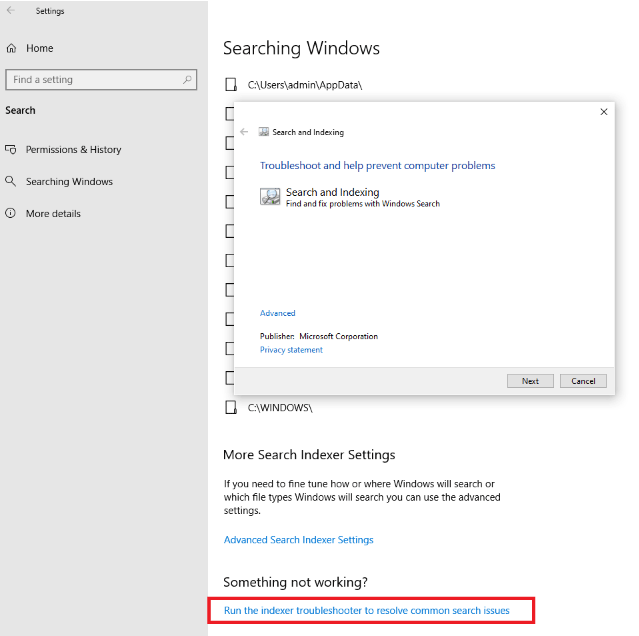

- #Avg false positive searchfilterhost.exe windows 10
- #Avg false positive searchfilterhost.exe pro
- #Avg false positive searchfilterhost.exe software
- #Avg false positive searchfilterhost.exe Pc
#Avg false positive searchfilterhost.exe software
In 2017, the company acknowledged that this same problem had been triggered by a faulty AVG software update. Reputable AV engines like AVG might recognize it as a false-positive detection or threat due to the outdated version running on the system (AVG 8.5, 9.0, 2011, 2012, 2013, 2014, or 2015) or outdated virus database. Although there's no clear evidence for such classification, cybersecurity experts warn that the detection might not be a false alarm.

Some cybersecurity researchers categorize this file as a Trojan horse or Alexa virus. The detection is related to suspicious malware
#Avg false positive searchfilterhost.exe Pc
#Avg false positive searchfilterhost.exe pro
In some of the cases, the AVG firewall may block the installation of HitMan Pro reporting the HitmanPro.exe as an IDP.ALEXA.51 malware.
#Avg false positive searchfilterhost.exe windows 10
However, the extent of this erroneous detection did not decrease and is currently often found on Windows 10 systems running Avira and AVG. Just to be clear: you should absolutely not ignore the article's culprit detection and scan a new file with another anti-malware to be sure that it is not a false positive.Īccording to the analysis being held a year ago, malicious detection prevails on the systems running 8.1 located in Portugal and Brazil. swUSB.exe) located in c:\windows\, %appdata% and %temp% folders. The AVG scan results usually report this “file” or detection to stem from the. Zombies, or potentially unwanted programs like EasySpeedUpManager2, and others. This detection is primarily associated with online games or apps, such as SeaMonkey, Plants vs. Idp.alexa.51 started showing up in 2016, when users began flooding the associated antivirus developers' forums with inquiries, asking whether the pop-up is indeed correct. Thus, you should always check whether the detection is actually a threat or a false positive before performing further actions. In such a case, the detection is most likely flagging malware that could harm your computer and put your personal safety, as well as privacy, at risk.

For example, users who downloaded Windows/MS Office suite crack KMSPico, also reported that they saw the warning from their anti-malware apps. However, you should be aware that this virus could also be a real issue. However, if these apps were downloaded from legitimate sources, it is highly likely that the Idp.alexa.51 detection is a false positive. Zombies or SeaMonkey noticed that a pop-up shows up, detecting malicious files belonging to these programs in Temp and AppData folders. Users who downloaded and installed seemingly safe applications such as Plants vs. Essentially, it means that the infection has not been identified as such and was not associated with a particular malware family, although its behavior was suspicious enough for the AV application to flag it as malicious. Idp.alexa.51 is a heuristic detection name typically used by Avast, AVG, or Avira to flag potentially malicious activity on the computer. What is idp.alexa.51? Idp.alexa.51 is a detection name for potentially malicious software by multiple anti-malware vendorsĪVG software is the only software that identifies this file as a threat.


 0 kommentar(er)
0 kommentar(er)
